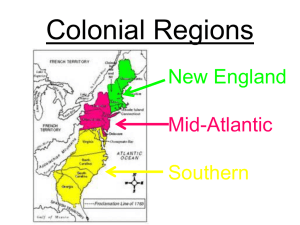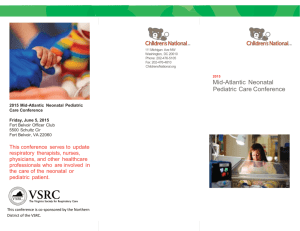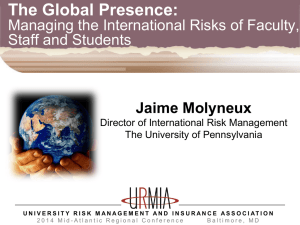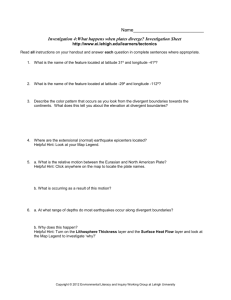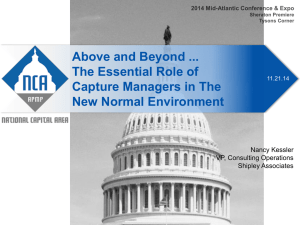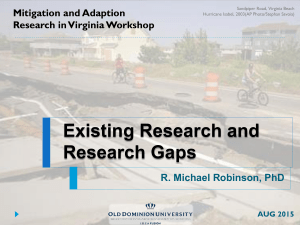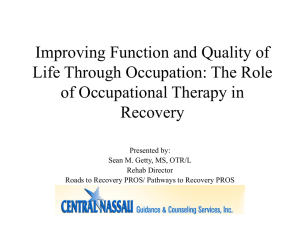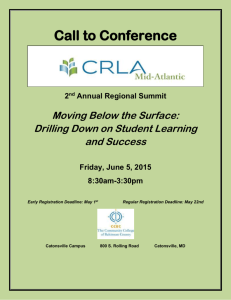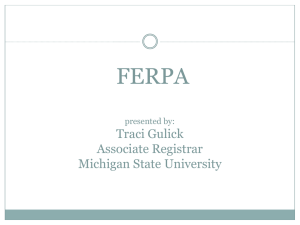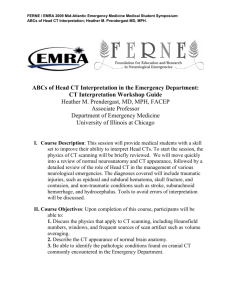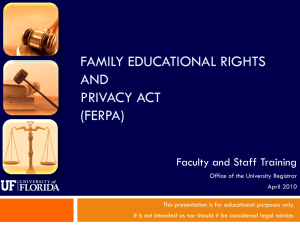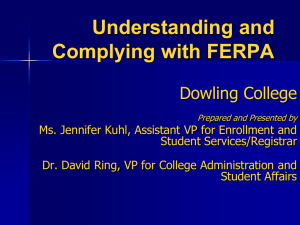Children`s Environmental Health: MACCHE PPT
advertisement
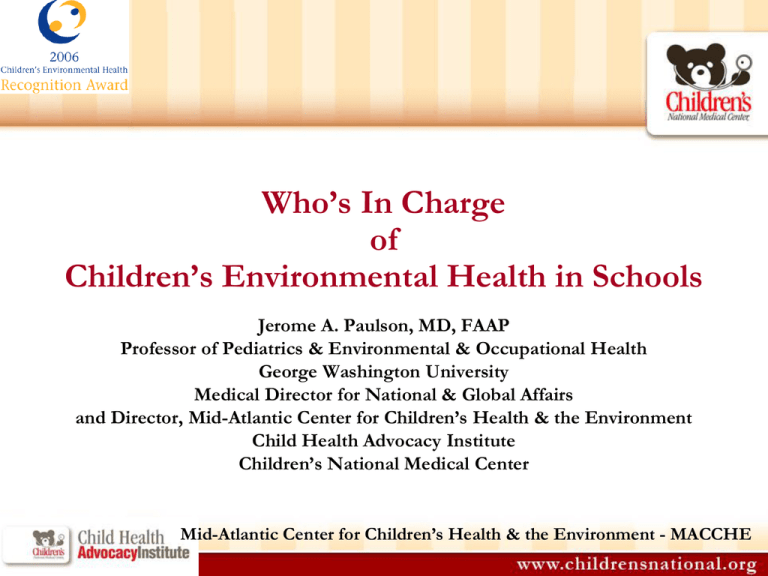
Who’s In Charge of Children’s Environmental Health in Schools Jerome A. Paulson, MD, FAAP Professor of Pediatrics & Environmental & Occupational Health George Washington University Medical Director for National & Global Affairs and Director, Mid-Atlantic Center for Children’s Health & the Environment Child Health Advocacy Institute Children’s National Medical Center Mid-Atlantic Center for Children’s Health & the Environment - MACCHE Not Going to Talk About • • • • • • • Indoor air quality Lighting Pests and pesticides Noise Radon Asbestos Lead • PCBs • Drinking water contamination • Cleaning processes and products • Siting problems Mid-Atlantic Center for Children’s Health & the Environment - MACCHE School Buildings • No 21st century data about the status of school buildings • In late 1990s, average school building 42 years old • Much deferred maintenance Mid-Atlantic Center for Children’s Health & the Environment - MACCHE Other Issues & Data Collection • No systematic collection of data related to health or environmental issues DEd DHHS – CDC – National Center for Health Statistics, National Center for Environmental Health EPA • Makes recognition of new problems difficult • Makes evaluation of problems and interventions difficult or impossible. • Family Education Rights and Privacy Act (FERPA) Formulating Public Policy Related to Schools in the US • Constitution leaves responsibility for education to the states. • Federal Department of Education – does not regulate children’s health & safety in schools (Office of Safe and Drug-Free Schools) • Federal Department of Health & Human Services (CDC) – does not regulate children’s health & safety in schools Formulating Public Policy Related to Schools in the US • States responsible for providing public education • State educational agencies without regulatory power related to environmental health • State often delegates authority for education to local school districts May be an agency independent of other components of local government and with own taxing authority Generally does not interface with state or local health or environmental departments Does not have internal expertise in environmental health Protection of Adults • Occupational Safety & Health Act of 1970 (Federal) Public sector workers not covered by federal law 25 states with own occupational safety and health program • • • • Union State departments of Labor Worker’s compensation programs Other Call in sick Change schools Protection of Children • Most pediatricians not trained to identify or deal with environmental health problems • Evaluation of school-based environmental health problems – multi-pronged approach Pediatrician – for child Industrial hygienist – for building Facilities management experts – for specific systems in buildings Conclusions • Need 1 Federal agency to establish a program n school environmental health Data collection – Modify or adapt FERPA to facilitate this Develop a coordinated federal strategy for the states to help their schools rapidly improve facility design, construction, and maintenance Set up programs to test and remediate for hazards and to phase in safer products. Fund and conduct research Develop and enforce REGULATIONS • Utilize PEHSUs to inspect schools and develop remediation and management plans QUESTIONS? Mid-Atlantic Center for Children’s Health & the Environment - MACCHE

